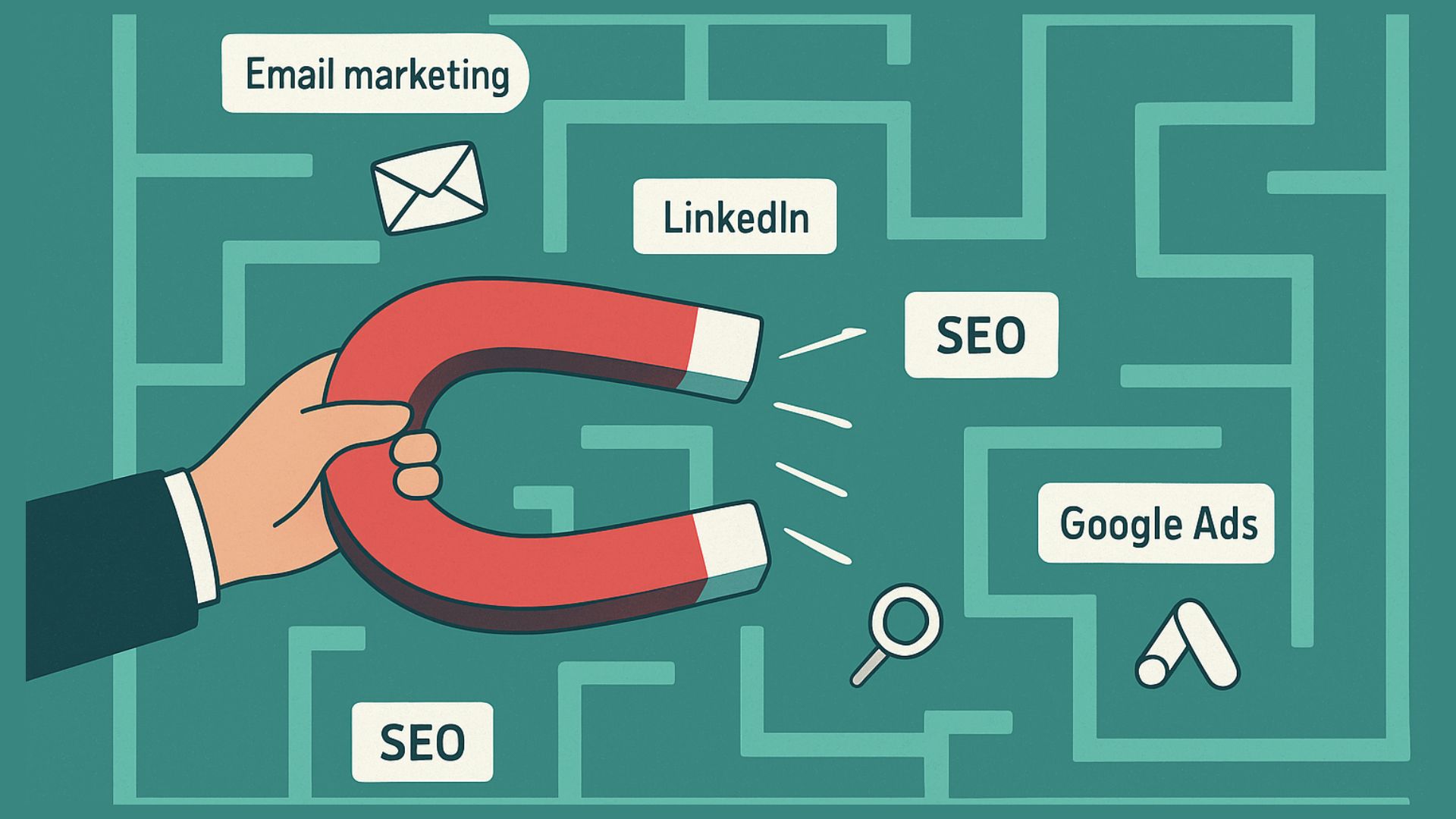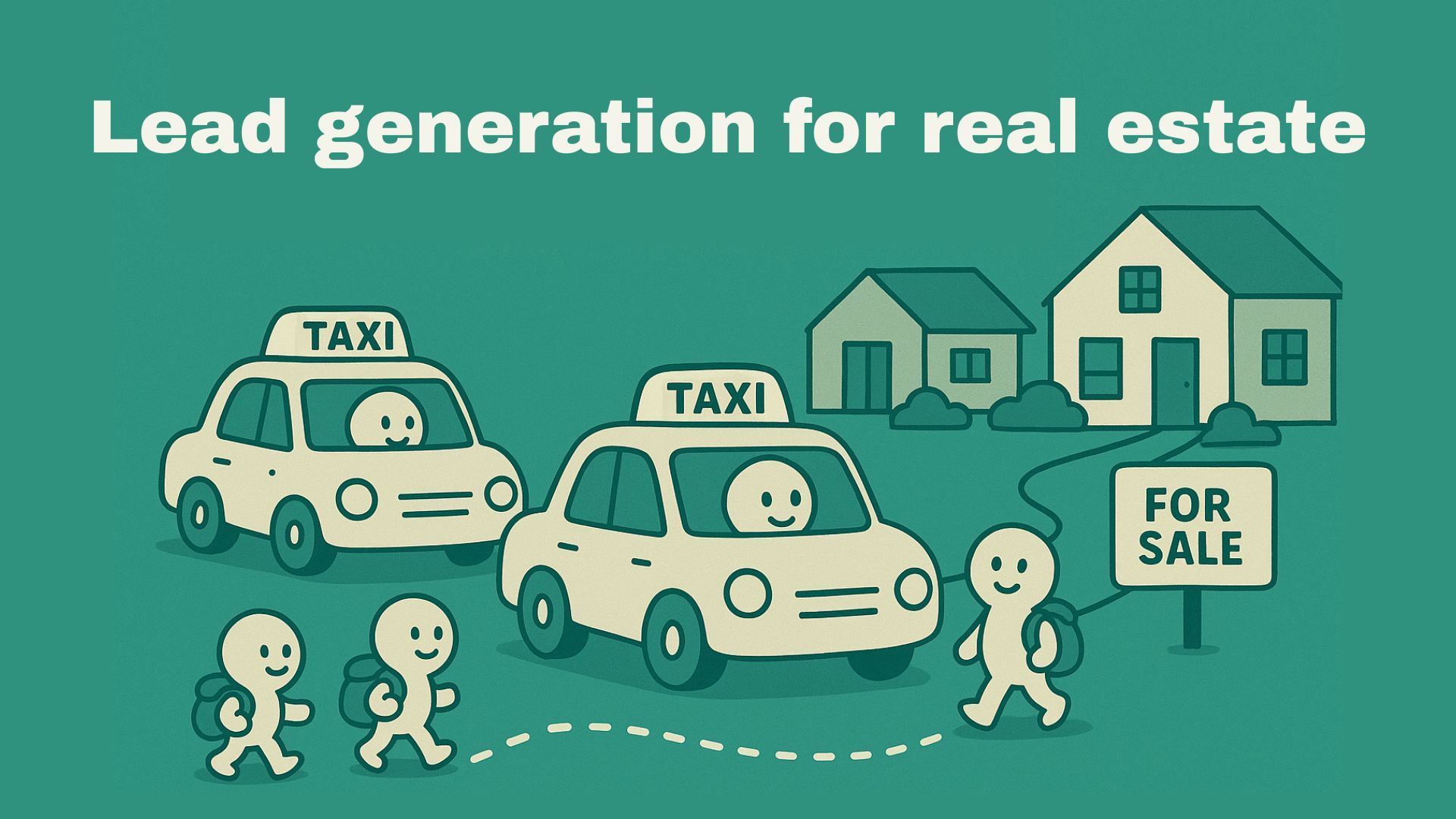

You know how to sell and execute ideas, but you will need helping tools to speed the process in this fast moving market. That’s where sales enablement steps in.
In this post, we’ll break down what sales enablement really is, why it matters for your team, the benefits you’ll gain, real-world examples, and how to measure the impact of these tools in your results. Let’s go!
Sales enablement meaning
Core components of sales enablement
At its core, sales enablement has a few key building blocks:
Content: This includes all the right pitch decks, product sheets and customer testimonials when buyers ask for it.
Training: Ongoing coaching, role-playing, onboarding modules because sales as an industry has a learning curve and doesn’t stop after day
Technology: Sales reps need to be given tools like CRMs (Superleap), enablement platforms (Seismic), and AI conversation tools (Gong) that help them work smarter.
Insights: This one is for the sales leaders who use buyer behaviour data and content performance metrics to fine-tune sales strategies.
Marketing alignment: When the partnership between marketing and sales is smooth, it ensures that leads are qualified and content hits the mark.
What is its importance in modern sales
Hard selling doesn’t make the cut anymore. Modern buyers expect value, and someone who works with them to understand their problem and provide customized solutions.
Sales enablement teams help in the process. When sales teams are equipped with the right resources, conversion and upsell rates are higher.
And what’s the most important thing to achieve all of this? SKILL. Enablement delivers you all the coaching, whether it is communication, product knowledge, or how to use necessary tools.
Companies who use a dedicated sales enablement platform see a 25% reduction in ramp time for new hires. For example, what took 8 months, now takes only 6, freeing up time for sales reps to focus on making a sale and drive revenue.
It also helps with onboarding, scaling teams, and navigating remote work. In a hybrid sales world, being connected and consistent matters more than ever.
Who owns sales enablement?
Depending on the company size and maturity, sales enablement ownership belongs to:
In early stage startups:
👉 Sales ops or marketing usually. Alongside other responsibilities, they also handle enablement tasks.
In mid-size to enterprise organizations:
👉 A dedicated sales enablement team is common. They either fall under sales leadership (to align closely with quota goals and coaching) or a cross functional setting (among all sales, marketing and product for a broader alignment)
In marketing-led orgs (especially in B2B SaaS):
👉 Enablement may be driven by marketing where the focus is on content creation, messaging, and campaign support.
Benefits of sales enablement
Common enablement mistakes
Content overload - Reps are bombarded with too much content and don’t know what to use when.
No feedback loop - Teams launch initiatives without checking what actually works on the ground.
Training without reinforcement - One-time sessions with no follow-up lead to low knowledge retention.
Tech stack bloat - Too many tools, not enough integration or adoption.
Generic content - Materials don’t match the buyer journey or specific sales scenarios.
Infrequent updates - Enablement assets quickly become outdated or irrelevant.
Lack of metrics - No way to track impact on quota attainment or win rates.
Examples of sales enablement in action
FMCG
Acosta, a sales and marketing agency located in Florida, brings almost 100 years of experience in helping companies build effective sales strategies and work through business challenges.
Problem
Acosta faced major challenges without a formal sales enablement structure. Sellers relied on scattered tools like SharePoint, OneNote, and personal spreadsheets to manage content and deals.
This led to outdated materials, inconsistent messaging, and no way to track or manage opportunities effectively. CRM adoption was low, which meant leadership had little visibility into the sales pipeline or deal progress - making forecasting and sales management difficult.
Solution
To solve this, Acosta built a dedicated sales enablement team and implemented Highspot.
They created short, easy-to-use sales “Plays” to replace bulky presentations, made content easily searchable, and ensured brand consistency with up-to-date materials.
Highspot was integrated with a CRM, linking every external content share directly to its related opportunity, improving pipeline visibility. They also introduced tools like AutoDocs for quick, personalized content creation.
Result
- Sellers saved around 15 hours a week
- CRM adoption increased and the company gained clearer, real-time insight into sales performance.
B2B
Bright Horizons family solutions is a leading global provider of employer-sponsored child care, elder care, tuition assistance, and education advising services. Operating in over 1,000 locations and partnered with more than 1,000 employers worldwide, Bright Horizons helps families and companies integrate work-life balance across multiple regions.
Problem
As Bright Horizons expanded across multiple lines of business and diverse customer segments, its previous sales enablement tool failed to scale.
The enablement team struggled to distribute bite-sized, contextual, and trackable content. Worse, reps relied on sending emails manually, losing critical engagement data and disconnecting assets from Salesforce.
Solution
Bright Horizons implemented Highspot, leveraging features like digital rooms to streamline content delivery. Within a fast five-week rollout, teams began sending contextualized pitches and link-based content. Adoption quickly climbed, with 83% regular user engagement.
Result
- 100% improvement in data visibility
- 109% increase in content usability by reps
- 83% recurring usage rate among users
Tools commonly used in sales enablement
- Content tools
- Seismic enables automated content delivery, real-time buyer engagement tracking, and usage analytics to see what works.
- Highspot helps organise sales materials, tracks how content performs in real time, and integrates with CRM for smart suggestions.
- Showpad is used for interactive content presentations, product demos, and training, often by field reps and presales teams.
- Training & coaching tools
- Lessonly offers structured learning paths, scenario-based learning, and onboarding journeys that reps can complete at their own pace.
- Mindtickle helps sales managers and enablement leads create gamified training modules, conduct role-plays, and assess skills.
- Tools like Allego and Brainshark also fall into this category, supporting video coaching and microlearning.
- CRM/AI & conversation intelligence tools
- Gong records sales calls and uses AI to analyse talk ratios, objection handling, competitor mentions, and buyer sentiment.
- Chorus does similar work, identifying deal risks, buying signals, and themes across multiple sales conversations.
Others like Clari and People.ai use CRM data and activity signals to improve forecasting and rep productivity.
Measuring the impact of sales enablement
Enablement is only as good as the impact it makes. So track:
- Time to productivity
- Win/loss ratios
- Content usage
- Sales velocity (speed at which a lead converts to generate revenue)
Review monthly, adjust often, and make enablement part of your performance engine.
Future of sales enablement
No matter the industry, AI integration has become a must-have. It can automate so many tasks that manually we don’t have to waste time over.
AI can personalize content for every buyer. In today’s world, sales as an industry has become value-specific. With so many options available, what is it that you are providing that stands out from your competitors?
Building relationships with clients, and offering your best/honest advice throughout, help gain customer loyalty, repeat business and contribute majorly to create a strong “brand persona”.
At Superleap, our CRM is completely AI powered. Whether it is automation, scheduling messages & reminders, or enhancing customer interactions by transcribing calls, we are built for modern sales teams that want speed, clarity, and visibility.
With 90% flexibility to customize the platform as per your business needs, our aim is make it as user friendly as it can get.
Heading text
Nunc sed faucibus bibendum feugiat sed interdum. Ipsum egestas condimentum mi massa. In tincidunt pharetra consectetur sed duis facilisis metus. Etiam egestas in nec sed et. Quis lobortis at sit dictum eget nibh tortor commodo cursus.
Odio felis sagittis, morbi feugiat tortor vitae feugiat fusce aliquet. Nam elementum urna nisi aliquet erat dolor enim. Ornare id morbi eget ipsum. Aliquam senectus neque ut id eget consectetur dictum. Donec posuere pharetra odio consequat scelerisque et, nunc tortor.
Nulla adipiscing erat a erat. Condimentum lorem posuere gravida enim posuere cursus diam.
.svg)

.avif)




